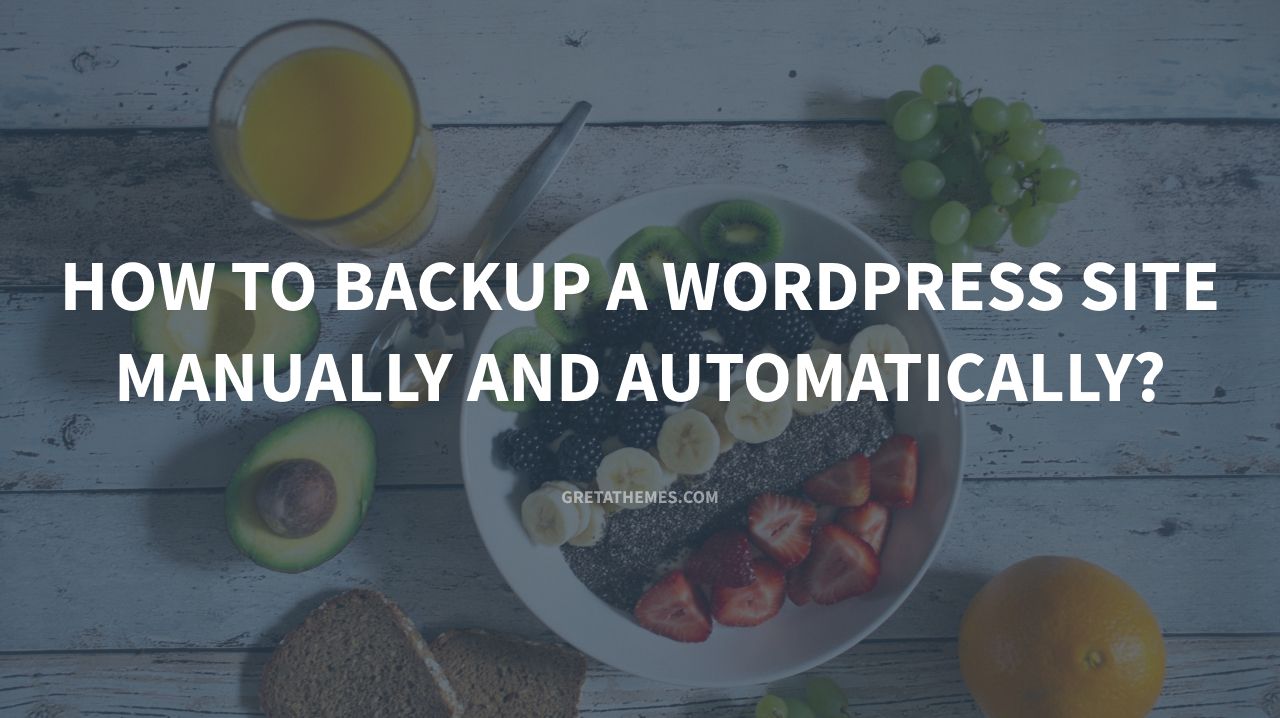
How to Backup Your WordPress Site Manually or Using a Plugin?
Last Updated: January 26, 2021 in Guides
Backup data is an important thing when you run a website. It helps you restore all your website when it is attacked or has an error as well as moved to another server. Everything will be done in seconds without losing any data if you backed it up.
There are several ways to backup your WordPress website, and here are the top simple and fast ones. The most popular ways are using cPanel (manual) and using a plugin (automatic).
Manually Backup Using cPanel
Step 1: Backup the Source Code of Your Website
In your hosting account, go to the cPanel page and choose File Manager.

You will see all the files containing the source code of all the website which you save in your host. Choose a folder of your website which you want to backup (1), press Select (2), then Compress (3).

A popup appears, then you choose Zip Archive to compress all the files to a .zip. Press Compress File (s).

Wait a minute till the compressing progress finishes. A new .zip file will appear in the list. Choose it then press Download to load that file to your computer.

Step 2: Backup the Database of your website
Back to the cPanel page, go to Database > phpMyadmin.

Choose a folder containing your website database, then choose Export > Quick > SQL > Go. that file will be loaded to your computer.

Now, you’ve finished the backup process and had the backup files of both source code and database on your computer.
If you need to backup your data regularly, this manual way is not the best one. There are a bunch of plugins that help you to backup periodically and automatically. Let’s see how.
Automatically Backup Using Plugin
As I said, there are dozens of plugins that help you to backup data. We wrote an article on the best plugins to back up WordPress websites, you can refer to it here.
On top of that, UpdraftPlus is outstanding with 2+ million installations. So, I’m going to provide here an in-depth instruction for UpdraftPlus using.
Install and Activate the Plugin
UpdraftPlus is a free plugin and available in wordpress.org. So, you can install it directly from your admin dashboard.
Right after your activation, you will see this:

Press the Press here to start button.
Backup at Once
If you want to back up the data at once, follow this part. Otherwise, move to the next part to schedule it.
In the admin dashboard, go to Settings > UpdraftPlus Backups. Look for the Backup tab > Restore > Backup Now.

A new popup appears, choose the data you want to backup then press Backup Now.

Now, the plugin will show the progress. Wait for it.

Now, scroll down your mouse, you will see a list of the backup files is showing up with all the details information and allows you to delete or restore it.

Regularly and Automatically Backup
Step 1: Schedule the Backup
In the UpdraftPlus Backups setting page, move to the Settings tab (1) and configure these parts: frequency (2), number of saved records (3), where to store the file (4).

Step 2: Choose Where to Store the Backup File
This plugin provides you pretty many options to automatically store your files, such as Google Drive, Dropbox, Microsoft OneDrive, … I chose Google Drive and let the configuration by default.

Scroll down now and press Save Changes.
Step 3: Grant Permission to the Plugin Access Your Storage
Next, the plugin requested permission to access my Google Drive.

So, I clicked the provided link and logged in to my Google account, granted it the permission.

Then, it will show up a notification that you have finished the setup. Press Complete setup.

It’ll take time to finish the backup process. When it’s finished, you will see the backup file in the list:

Final Words
As you see, having a backup of your website data is pretty easy no matter what you chose which way to follow. If you are not tech-savvy, you may not want to touch cPanel. And even you are a developer, I still recommend you to use a plugin instead. It brings you an advantage that helps you to regularly and automatically backup your site. It ensures your data on the website always be safe.
Lastly, it can be risky if you skip this task. So, just take some easy above actions to save your site.
